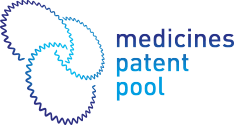Jacqueline Wambui
30 July 2019
Jacqueline Wambui lives in Nairobi, Kenya, and has been affiliated with the National Empowerment Network of People Living with HIV/AIDS (NEPHAK) in Kenya for several years.
Registered in 2003, the Network’s mission is to promote greater and meaningful involvement of people living with HIV (PLHIV) in the national response to tuberculosis and HIV/AIDS. Jacque currently runs the Advocacy and Communications function at the network. Her educational background is in HIV counselling and training. She is an HIV positive activist with a special interest in sexual and reproductive health for young HIV positive women and girls and advocating for their rights.
Jacque was put on several different antiretroviral regimens, including d4T (stavudine), nevirapine and efavirenz before being switched to TLD (tenofovir/lamivudine/dolutegravir).
“The main differences dolutegravir (DTG) has made is that it has much less side effects than the other drugs and it comes in such a low dose, only 50 milligrams! I’m in my fourth month of treatment and I would say of course I am more hyper, I’m no longer lethargic, I no longer dread taking my pill at 10:00 PM at night.”
“Many of those who have switched are saying that their life is much better. They are able to function well. Especially for women who were not able to take care of their children and to run a family and do the daily hustle, it’s much better.”
“With dolutegravir there’s no more dizzy spells. For a long time, I couldn’t just stand up and walk out of a seat because I had to wake up slowly. It was quite painful. But now with dolutegravir, no, my body is getting used to it, and my bones are getting less stiff.”
Talking about the remaining challenges in her country, Jacque says: “women living with HIV should be given the choice. Inform them about the risks and benefits of the different ARV regimens, and let women decide what is best for them […]. Also, sexual and reproductive care and counselling should be integrated in HIV settings.”
UNAIDS estimates that the total number of adults and children living with HIV in Kenya is approximately 1.5 million.
From January 2012 to December 2018, MPP generic manufacturing partners have supplied 413,000 patient-years of DTG and TLD treatment in Kenya[1].
Source data and additional information
AVAC – Global Advocacy for HIV Prevention
UNAIDS country stats – Kenya
Note:
[1] More sales have occurred through procurement agencies










